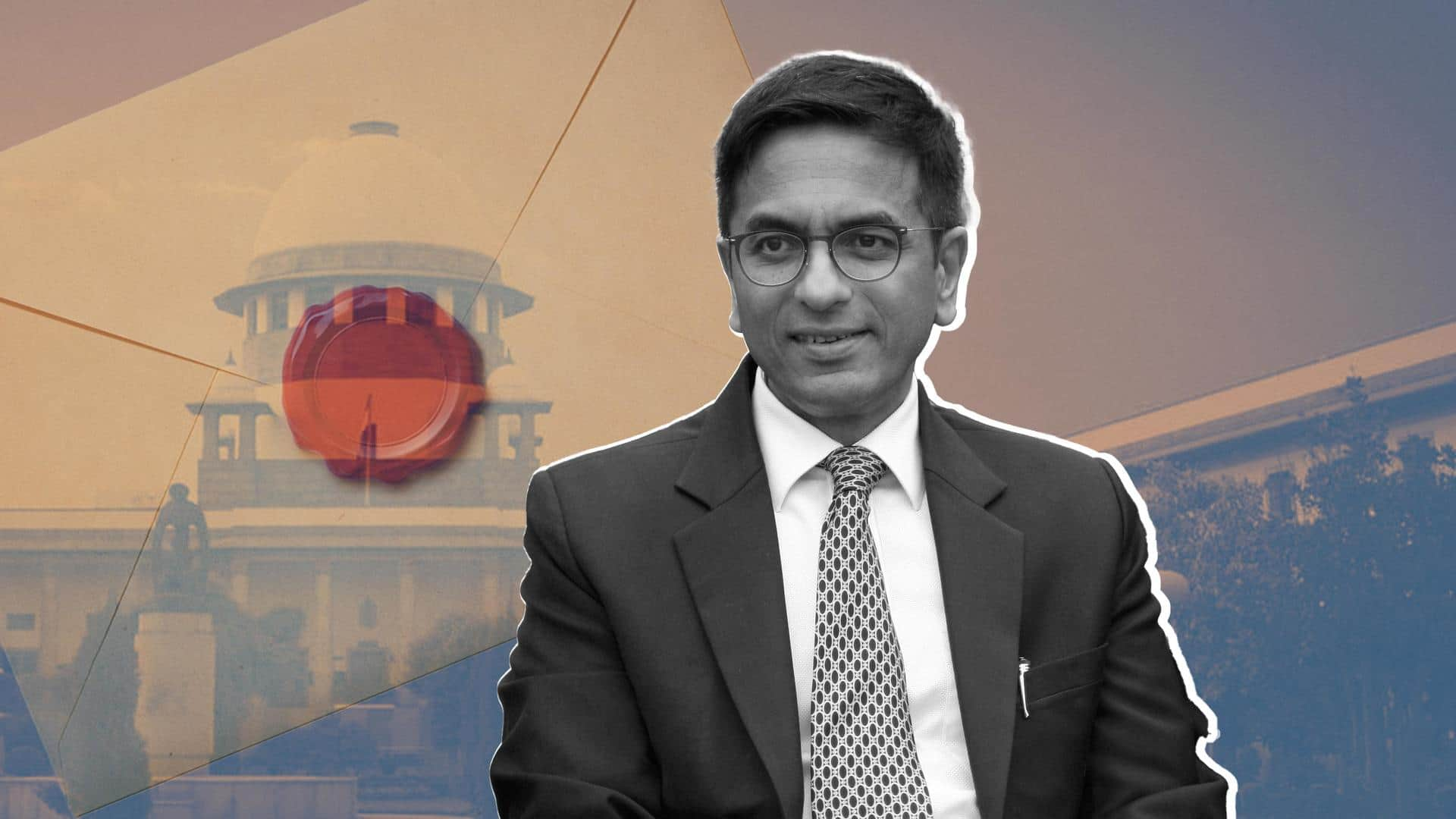
Why CJI Chandrachud refused to accept Centre's sealed note
What's the story
Chief Justice of India (CJI) DY Chandrachud lashed out at using sealed cover envelopes for submissions to courts while hearing the One Rank One Pension (OROP) case on Monday.
Chandrachud reportedly rejected a sealed cover envelope from Attorney General of India R Venkataramani containing the Defence Ministry's decision on paying pensions, asking the top government lawyer to read it or take it back.
Context
Why does this story matter?
In 2022, the Supreme Court (SC) observed that the "sealed cover" process sets a "dangerous precedent" because it makes "the process of adjudication vague and opaque."
A bench of Justices Hima Kohli and Chandrachud, in a verdict passed on October 20 last year, observed that this process affects the operations of the justice delivery system and causes a severe breach of natural justice.
Details
Need to end sealed cover practice in SC: CJI
"We need to put an end to this sealed cover practice in the Supreme Court; this is fundamentally contrary to (the) basic process of fair justice," Chandrachud was quoted as saying by The Hindu.
The remarks by the bench of Chandrachud and Justices JB Pardiwala and PS Narasimha came while hearing the Indian Ex-Servicemen Movement's (IESM) appeal regarding OROP arrear payments to former servicemen.
More quotes
Communicate findings to opposite party: SC
The SC bench also asked the attorney general to communicate the findings to the opposite party as well, as per Bar and Bench.
"Please share the sealed cover with the opposite side or take him to the chamber. We want to put an end to the sealed cover business being followed by Supreme Court since High Courts also follow it," Chandrachud reportedly said.
More details
Details on IESM plea
Regarding the plea, Chandrachud stated the top court sees the Centre's difficulties with OROP arrears payments to former service personnel; however, it needs to understand the action plan.
"Budget outlay is not able to meet this huge outflow at one go. The Finance Ministry was taken into confidence, and it has said it is unable to meet this outflow at one go," he stated.
Know more
Know about OROP dues
On March 13, the apex court came down heavily on the Centre after it "unilaterally" decided to pay OROP dues over four installments, reported NDTV.
Recently, the Defence Ministry also filed an affidavit and a compliance note in the country's highest court, outlining a timetable for Rs. 28,000 crore in arrear payments to former servicemen for 2019-22.
Further information
Details of arrear payments as per SC order
According to the SC's order, OROP arrears from 2019 would be payable to family pension earners and gallantry award winners (almost six lakh people) by March 30.
Ex-servicemen aged 70 years and above (approximately four lakh individuals) would receive the same by June 30, and the rest (10-11 lakh) would get arrears in equal installments on August 31, November 30, and February 28, 2024.